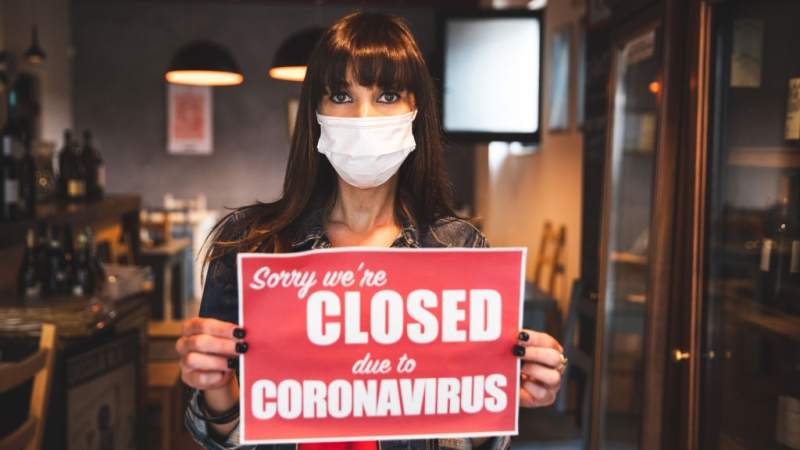Michigan is in the midst of a three-week shutdown of indoor dining service for bars and restaurants due to the COVID-19 pandmic. | Stock Photo at Getty Images
Michigan is in the midst of a three-week shutdown of indoor dining service for bars and restaurants due to the COVID-19 pandmic. | Stock Photo at Getty Images
An organization that serves as the voice of Michigan establishments with liquor licenses has questioned why bars and restaurants are being targeted in a "pause" to slow the rising number of COVID-19 cases, when private social gatherings appear to be causing more viral spread.
"We're less than 4% of the outbreaks based on state numbers (as of Nov. 5)," Scott Ellis, CEO of the Michigan Licensed Beverage Association, told Bridge Michigan. "Our people are more terrified than ever. There's no funding or anything to help them."
His response comes after the Michigan Department of Health and Human Services announced a three-week "pause," which includes shutting down indoor restaurant service. Retailers in the state are also facing reduced capacity requirements, dropping from 50% down to 30%.
It's been a rough year for many bars in the state that have been closed for longer periods of time than they've been open. Both bars and restaurants were closed in the spring when the virus first made its way to Michigan.
Gov. Gretchen Whitmer allowed them to reopen on June 8 with a limited capacity. Less than a month later, bars in the southern part of the state were once again forced to close and only allowed to reopen, with social distancing and table service, early in October.
Ellis said the industry has been "devastated." According to Ellis, studies showed more than 20% of businesses in the industry would close permanently, and now they're worried that number could be between 40 and 50%. He and other business leaders are asking for financial help for people are owners or employees of bars and restaurants.
"If we're being told to sit back, be patient and not act, we expect our leaders to have a plan," Ellis told Bridge Michigan. "We expect our Legislature and governor to be taking the steps necessary to ensure that our industry survives."





 Alerts Sign-up
Alerts Sign-up